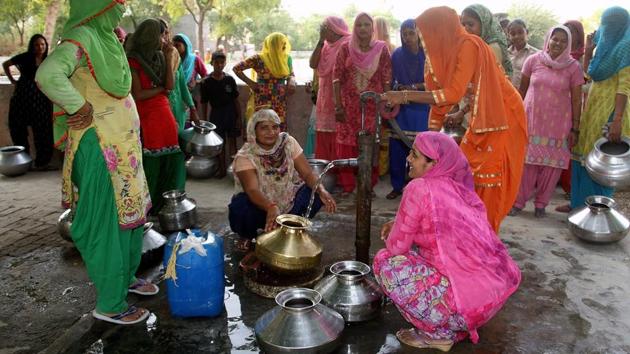Water scarcity, climate change will lower living standards in India: World Bank report
Overall 600 million Indians will be moderately or severely affected by changes in temperature and rainfall, the report said.
Climate change if unchecked will lower living standards of about half of South Asia’s population by 2050, with people in central India likely to be worst hit, a World Bank report will say.

Overall 600 million Indians will be moderately or severely affected by changes in temperature and rainfall. People living inland are more likely to witness an erosion in living standards compared to those in coastal and hilly regions, says the report that will be released on Thursday.
“Almost half of South Asia’s population lives in areas that are projected to become moderate to severe hotspots by 2050 under the carbon-intensive scenario,” a preview of the report says. “At the same time, living standards in some currently cold and dry mountain areas could improve marginally.”
Hotspots are areas where living standards will be most affected by changes in temperature and rainfall.
The report used household survey data to understand the link between living standards and weather conditions.
It examines how rising temperatures and changing rainfall patterns will impact living standards under two scenarios: One, where aggressive climate-change action is taken and another when minimal action is taken.
The report looks at 11 models that have been able to predict with a high degree of accuracy the changes in temperature and rainfall in South Asia at the district level. In both cases standard of life of people is likely to fall, but the impacts would be very severe in the minimal-action scenario.
The World Bank findings are the latest in a series of warnings that a warming planet posed a serious risk to India, which could hamper the country’s growth story. A study released earlier this year found that India is one of the most vulnerable countries to climate change, which is likely to lead to greater food insecurity, even if the temperature rises by 1.5 degrees Celsius above pre-industrial levels.
A leaked draft report from the Intergovernmental Panel on Climate Change this month suggested that current pledges taken by countries to reduce greenhouse gas emissions might not be enough to prevent catastrophic impacts of climate change.
“The government has not prioritised adaptation the way it should,” Harjeet Singh, climate-change expert at Action Aid said. “India as a country has been ranked one of the most vulnerable countries to climate change. If we don’t focus on adaptation we will see an erosion of development gains.”




